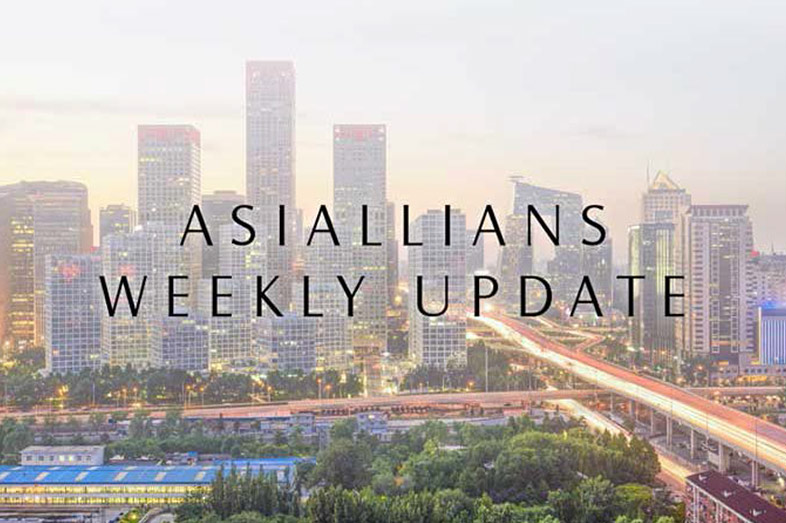
- Sep 09, 2019
I. Legal News
1. NPC Standing Committee Seeks Opinions on Third Draft Sections on Torts of the Civil Code
Draft Sections on Tort Liability (Third Draft for Review), deliberated at the 12th Session of the Standing Committee of the 13th National People's Congress ("NPC"), have recently been released for public consultation by September 26, 2019.
As introduced in our previous articles, the Civil Code is a great legislative plan proposed in 2014 and is planned to be effective by 2020. The General Provisions of Civil Code, serving as the first move, already comes out in 2017,
Subsequently with the sub-provision parts being drafted and reviewed. The draft Civil Code includes six parts, namely property rights, contracts, Personality rights, marriage and family, inheritance and tort liability. Regarding the sections on Tort Law, compared to the current PRC Tort Law and the first/second drafts for Review on Tort Liabilities, the Third Draft for Review on Tort Liabilities only contains minor changes and we draw your attention to the following two aspects:
1. Product liability
Under the current Tort Law, if a product was found to be defective, the manufacturer/seller is bilged to give timely warnings, recall the defective product, or take other remedial measures. Although the recall system is clearly mentioned in the law, it is still not clearly regulated who shall bear the expenses incurred to the infringed party due to the recall. The Third Draft for Review adds one sentence to clarify that if the aforesaid recall is initialled by the manufacturer/seller, the manufacturer/seller shall bear necessary expenses incurred by the infringed party.
2. Throwing objects from high-rise buildings
There is a growing public call to strengthen prevention and accountability for throwing objects from high-rise building as lots of accidents occurred nationwide recently. The Third Draft for Review further clarifies that, when an accident occurred due to throwing objects from high-rise buildings, an investigation shall be conducted by “relevant departments” in a timely manner to make clear who is the accountable person(s), and only if it is hard to figure out who thrower the objects, all individuals living in the building shall all be held accountable; However, it is not clear yet on who are the relevant departments.
(http://www.npc.gov.cn/npc/c30834/201908/e09b823f1f2a4447adb315500fac6d27.shtml)
1. Hot topic
Shenzhen FTZ Further Liberalizes Currency Conversion on Capital Account
Due to the foreign exchange control in China, once an enterprise received income from abroad on Capital Account, to convert such foreign currency received into renminbi, the enterprise shall first submit relevant back-up materials to the bank for proving the authenticity of the transaction concerned. To test a more liberalized currency conversion system, as of
February 2018, such cumbersome pre-approval formalities at the bank have been eased in the Shenzhen Pilot Free-Trade Zone (“Shenzhen FTZ”) to. According to the policy released in 2018, the pre-approval formalities requested at Bank are permitted to be changed into “spot checking afterwards” which means that the for enterprises meeting certain requirements, the “pre-approval bank formalities” are not requested. It is also reported that till the end of June this year, 71 enterprises had met the criteria and in total USD 1.49 billion have been converted into renminbi in a liberalized way.[1]
In July 2019, the policy was further liberalized by enabling more enterprises to converse currency in Shenzhen FTZ in a liberalized way.
Comparison of enterprises’ criteria
| 2018 policy | 2019 policy |
|---|---|
|
1.no administrative penalty record of foreign exchange for the past three years; 2. meeting one of the following criteria: (1) tax paid in the last year amounting to more than 100,000; (2) Hong Kong invested enterprise. |
no administrative penalty record of foreign exchange for the past year; |
We can see that under the 2019 policy, more enterprises can enjoy the liberalized currency conversion system, not only the Hong Kong invested enterprise or the enterprise who paid tax amounting more than RMB 100,000. Meanwhile, the period request on “no administrative penalty record” has been shortened from 3 years to 1 year. It is reported that such liberalization aims to make Shenzhen FTZ more attractive for foreign investment.
